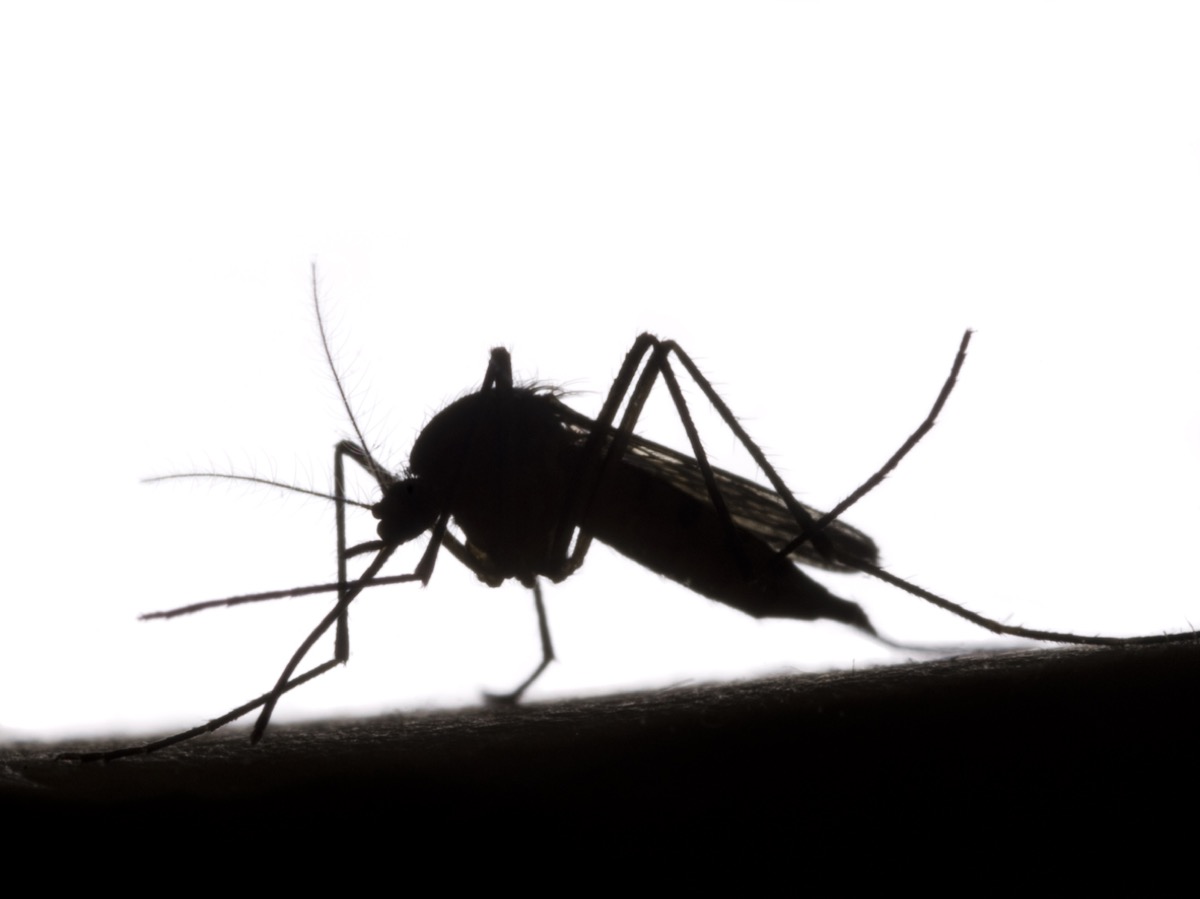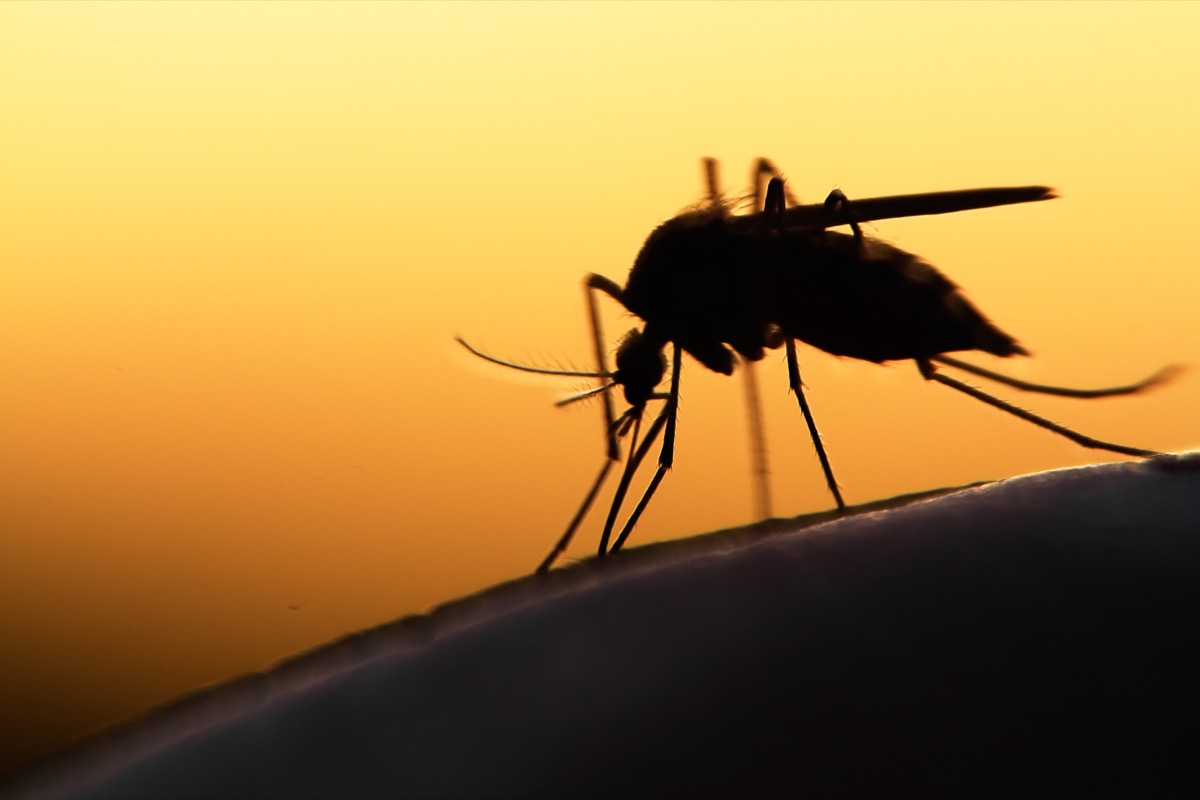The Aedes scapularis is found in Texas, across South and Central America, and in much of the Caribbean, according to Smithsonian Magazine. In 2019, this species was also found in Florida for the first time in 75 years. University of Florida entomologist Lawrence Reeves told NPR that in Brazil this species has been known to carry “things like Venezuelan equine encephalitis virus, yellow fever virus, and a handful of others.” A 2020 study found that the species is well established in two Florida counties, Miami-Dade and Broward. Experts are worried that these mosquitoes could travel west or north, spreading to more spots in the U.S. And for more states that need to be on the lookout out for insects, If You Live Here, Prepare for a Major Bug Infestation, Expert Warns. Not only is there an increased risk with these mosquitoes from the diseases they can carry, but they also bite more frequently. According to Smithsonian Magazine, the Aedes scapularis is “particularly aggressive about biting people” and “thrives in human environments and enjoys the indoors.” These factors make it easier for the mosquitoes to spread illness and generally be a nuisance. And for more pests that are hard to avoid, If You Smell This in Your Bedroom, You Might Have Bed Bugs. Another aspect that makes this species of mosquitoes especially concerning is that they feed on both people and birds. “If you end up with a species that’s capable of transmitting to [birds] and likes to also bite humans, that’s the prime condition for a spillover event,” Florida entomologist Lindsay Campbell told NPR. Per NPR, scientists believe that the COVID pandemic is a “result of a spillover event, involving bats or another animal species.” And for more useful information delivered straight to your inbox, sign up for our daily newsletter.ae0fcc31ae342fd3a1346ebb1f342fcb While this species is currently confined to two counties in Florida and some areas of Texas, experts are worried the mosquitoes may soon spread. “The Florida Strait was likely a geographic barrier for the species,” Reeves told Entomology Today. “Now that it has crossed that barrier, Aedes scapularis could potentially spread further northward and westward to fill any contiguous areas that are environmentally suitable.” Reeves also told NPR that climate change and shifts in trade and human movement may make it easer for these invasive mosquitoes to spread. With global temperatures rising, the geographical regions where these species can thrive could increase, which would allow them to spread disease more readily. According to Reeves, 10 new non-native mosquitoes have been found in Florida since 2000, with more on the horizon. And for insects making their dreaded return, These Awful Bugs You Forgot About May Soon Come Back, Exterminators Warn.



